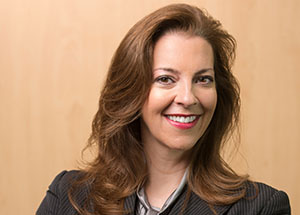Explaining the Why
We are excited to welcome Lori McNeill to the Price Associates team. Lori has been an effective change agent for organizations of all sizes, from start-ups to Fortune 100 companies to powerhouse marketing group, Ogilvy & Mather. In her most recent role at Pfizer, she worked as Chief of Staff and Director of Global Operations.
Today, in her work as an executive advisor, organizational excellence coach and speaker, Lori is a partner and strategist, diving deep into organizational needs throughout the company.
We sat down to talk with Lori about her experience leading teams, her penchant for innovation, and her belief in communicating the why.
You have spent years managing teams, studying leadership, and coaching executives. What has been your most eye-opening leadership lesson to date?
I found out early my career how important it is to explain the “why.” It’s not enough to simply tell your team what they should be doing. Just barking orders results in employees who are detached and nothing but order takers, versus engaged employees who can get behind the initiative you are proposing—and even have some autonomy for improving their portion of the task.
When I was a manager at Pfizer, I was one of 13 leaders presenting the same initiative, but I was the only one emphasizing the why behind the new direction, instead of just telling my team that there was a new call to action. And as a result, the people on my team responded differently. It was in that moment that I understood the impact of providing context and a narrative.
Change can be tough. It often results in hesitation, pushback and even resistance. But when leaders take time to explain the why, it makes a world of difference regarding buy-in from the team. I’ve seen this phenomenon again and again.
Every day we make choices and ask others to do the same. It doesn’t matter how big or small the decision is, it’s important to understand the reason behind it. As leaders, we need to be giving that information to our teams. It’s the old adage, “go slow to go fast.” When you want someone to make a fast decision for a deadline, if you go just slow enough to give the context they need, you will go faster in the long run because people have the data to make that fast decision.
Why do you think that explaining the “why” is often missing from leadership?
I think a lot of managers skip the why because we have been conditioned to communicate quickly, which isn’t always the most effective way. We communicate in texts and tweets, with limited characters, abbreviations, and often limited information. All of the technology we have at our disposal has begun to condition us out of having meaningful interactions with people—both our employees and customers.
Besides your organizational coaching, what other areas are you passionate about?
I love innovation. I’ve worked with several start-ups, and I received a coveted Innovation Award when I was Director of Global Operations at Pfizer. There is something about the innovation framework and the tools to solve challenges that really excites me. That’s why I’m partnering with Evans Baiya and Ron Price to deliver The Innovator’s Advantage program.
I also have a passion for storyline development and presentation skills coaching. I lead departments at Pfizer on these two topics, which really go hand-in-hand. When you think of the best presentations you’ve experienced, they have likely included some amount of storytelling. I enjoy coaching executives through their presentation skills, helping them improve pace, structure, content, and nonverbal communication. I work a lot with clients on both large presentation skills, but also small-group presenting and even one-on-one communication. There is a lot that DISC can teach about communicating in ways that will be well received by your audience.
I also work to help my clients build a storyline, which really translates back to developing the why. I help them break their message down into steps that are manageable and understandable. The applications for storyline development are wide ranging: there are multiple stakeholders on any single initiative, whether they’re internal or external—from working with teams to get buy-in to motivating the team take action to helping the marketing department define which story to tell.
After such a successful career, what drew you to leadership advising?
Throughout my career, I found my work in training and development the most rewarding. I loved the process of coaching individuals and teams through challenges and then seeing the results when they made significant progress.
Solving problems and making an impact are the most rewarding parts of what I do. Ultimately, I want to make someone’s job easier, whether it’s solving a challenge related to process or to people.
I love the journey! It’s not just the outcome that is rewarding; it’s about enjoying the process of working with clients along the way.


